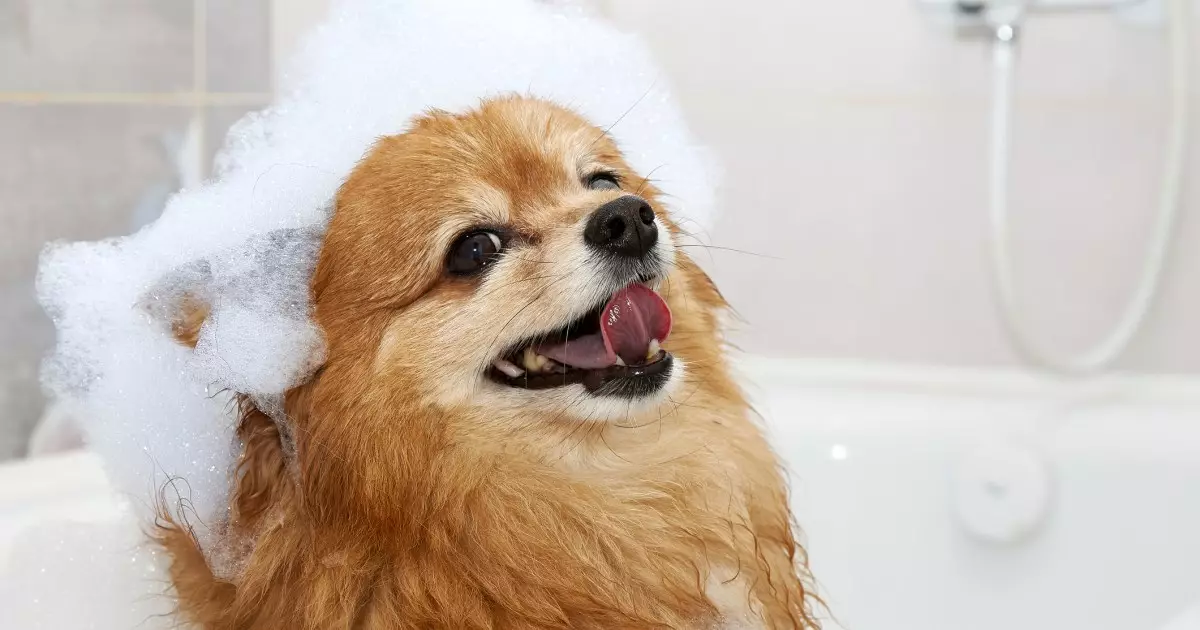When it comes to grooming our canine companions, one of the most overlooked aspects is the appropriate cleaning products we use on them. While humans often see bathing as a mundane routine necessary for personal hygiene, for dogs, it’s a different world entirely. Many dogs, regardless of their size or breed, can view bathing as an unfortunate chore that often elicits resistance. However, regular bathing is essential for the overall health and well-being of dogs, which brings us to a pivotal question: why can’t we use human shampoos on our dogs?
Understanding Canine Skin and Coat Differences
Dogs have unique skin and coat characteristics that differentiate them markedly from humans. The pH level of canine skin is generally higher than that of human skin. This means that using a shampoo formulated for humans can upset the natural balance of oils and moisture present in a dog’s coat, resulting in dried-out skin, irritation, or even allergic reactions. Products meant for human use often contain synthetic detergents that, while effective for human hair, can be too harsh for our pets. Thus, it’s essential to utilize shampoos specifically designed for dogs.
Navigating the numerous dog shampoos on the market can be overwhelming. Much like human hair care products, canine shampoos come in a variety of formulations, all targeted to meet different needs. To find the best shampoo for your furry friend, consider consulting your veterinarian or a professional groomer. They can offer insight tailored to your dog’s specific coat type, skin conditions, and grooming requirements.
Below are some common types of dog shampoos:
– Puppy Shampoo: These shampoos are formulated to be extremely gentle, often free from harsh chemicals, to ensure they are safe for young, sensitive skin.
– Brightening or Whitening Shampoo: For dogs with white or light-colored coats, these specialized shampoos help to maintain their brightness and reduce discoloration.
– Waterless Shampoo: While convenient, these dry shampoos should not replace regular baths, as they are only a temporary fix for surface dirt and odors.
– Deodorizing Shampoo: Perfect for dogs who have rolled in something unpleasant, these shampoos effectively combat foul smells, though they may not be powerful enough for extreme odors like skunk spray.
– Skunk-Removing Solution: For truly odorous situations, an effective home remedy consists of mixing hydrogen peroxide, baking soda, and liquid soap, applied quickly and thoroughly.
– Medicated Shampoo: For common canine issues such as fleas, itching, or skin infections, medicated shampoos can be a helpful addition to your dog’s grooming routine. These shampoos often require leaving the product on the coat for a certain period, necessitating patience and preparation on your part to ensure the effectiveness of the treatment.
If your dog shows signs of allergies or sensitivities, such as excessive scratching or redness, hypoallergenic shampoos are essential. These gentler formulas avoid common irritants like artificial fragrances and dyes. Additionally, anti-itch shampoos that contain ingredients such as hydrocortisone can help alleviate discomfort for dogs with sensitive skin.
For more severe skin conditions, such as mange, prescription shampoos from a veterinarian may be required. These treatments are typically more potent and target specific health issues, emphasizing the importance of veterinary guidance when tackling significant dermatological concerns.
Bathing can be quite a daunting experience for many dogs, who may associate it with discomfort. To minimize anxiety during bath time, consider creating a calm and relaxing environment. Frequent exposure to the bathing process can help dogs become more comfortable, making it a more enjoyable experience for both parties. Utilize positive reinforcement by rewarding them with treats and affection during and after the bath.
Choosing the right shampoo for your dog transcends aesthetics and hygiene; it is a crucial aspect of their health and overall happiness. By understanding the specific needs of your dog’s coat and ensuring they receive the appropriate products, you can maintain their well-being while fostering a positive grooming routine. So the next time bath time rolls around, remember the unique needs of your canine companion and choose wisely!


Leave a Reply